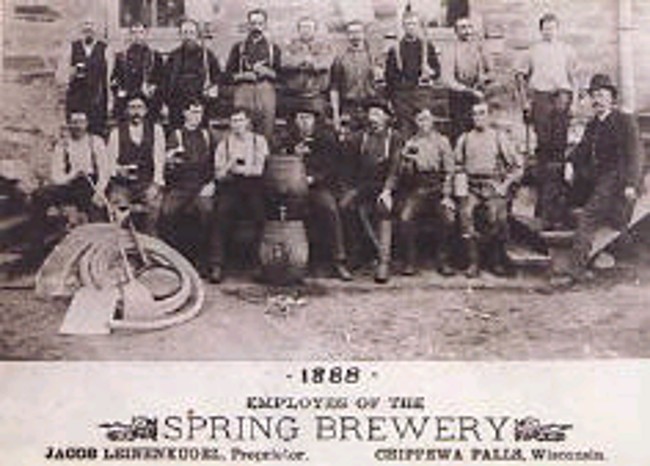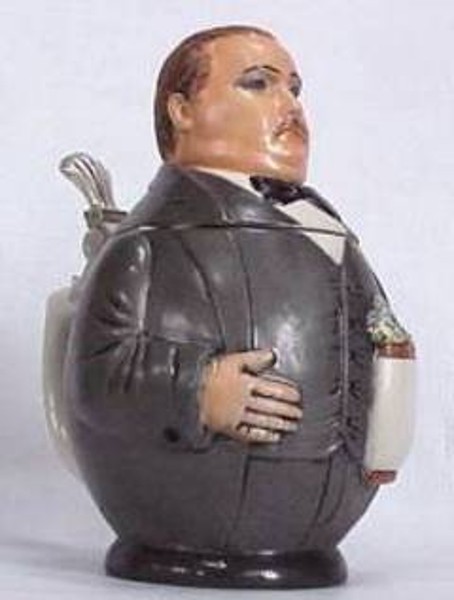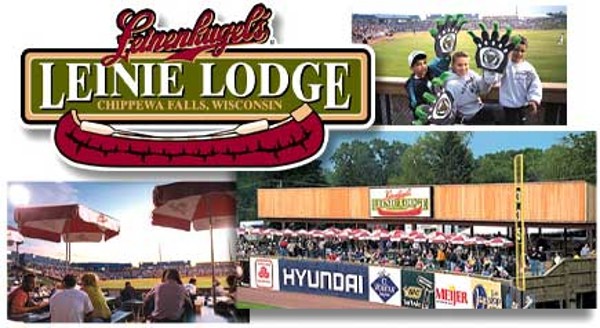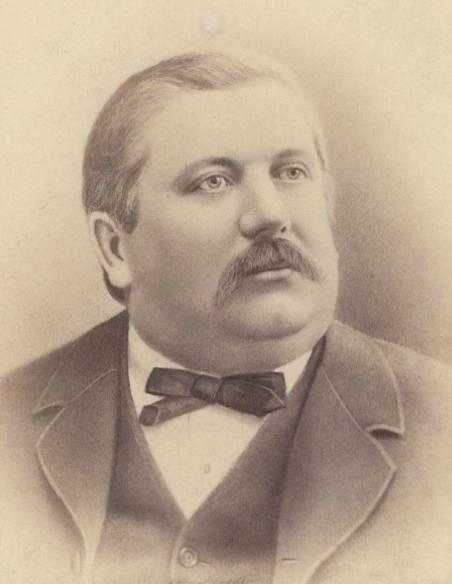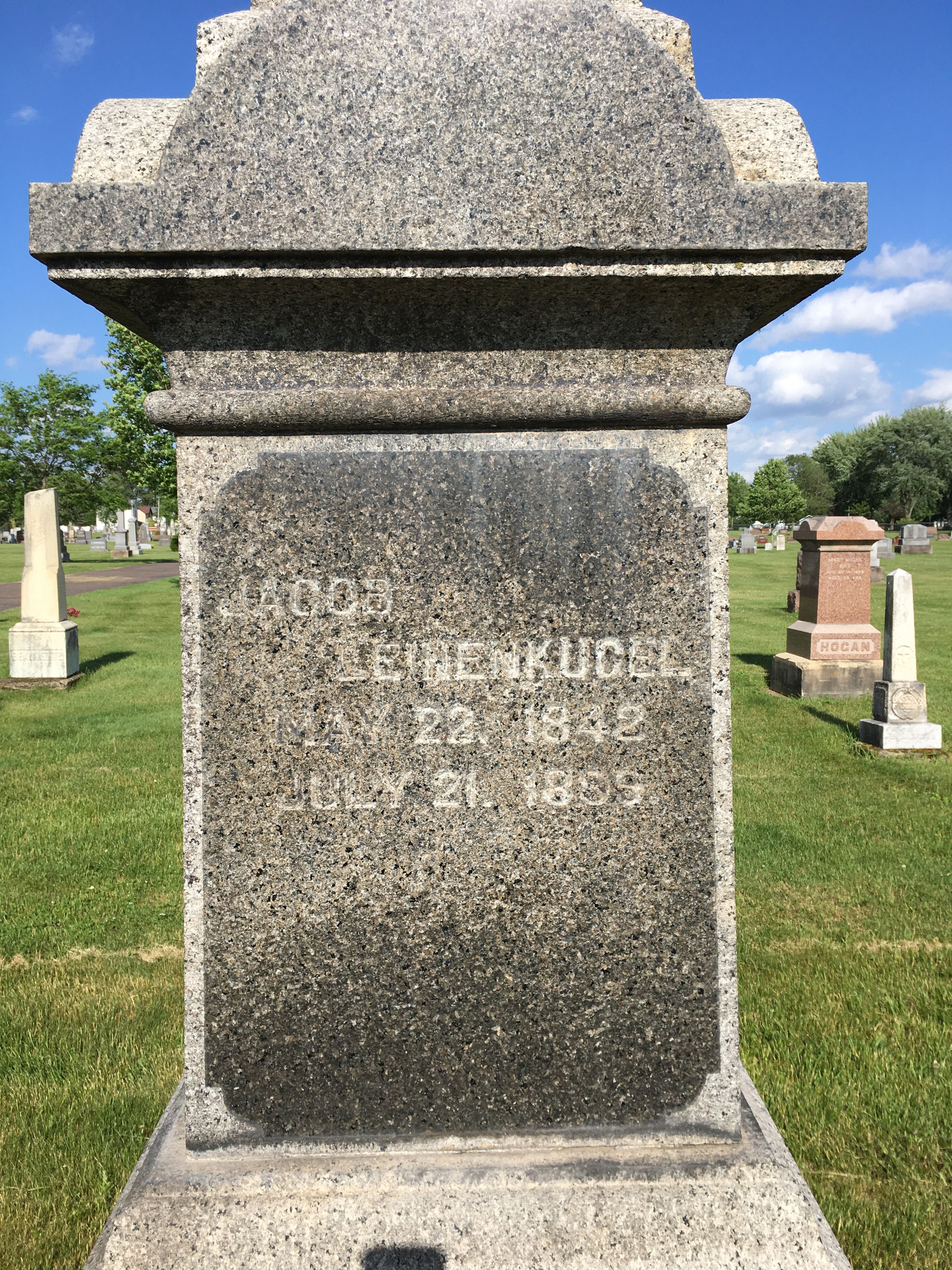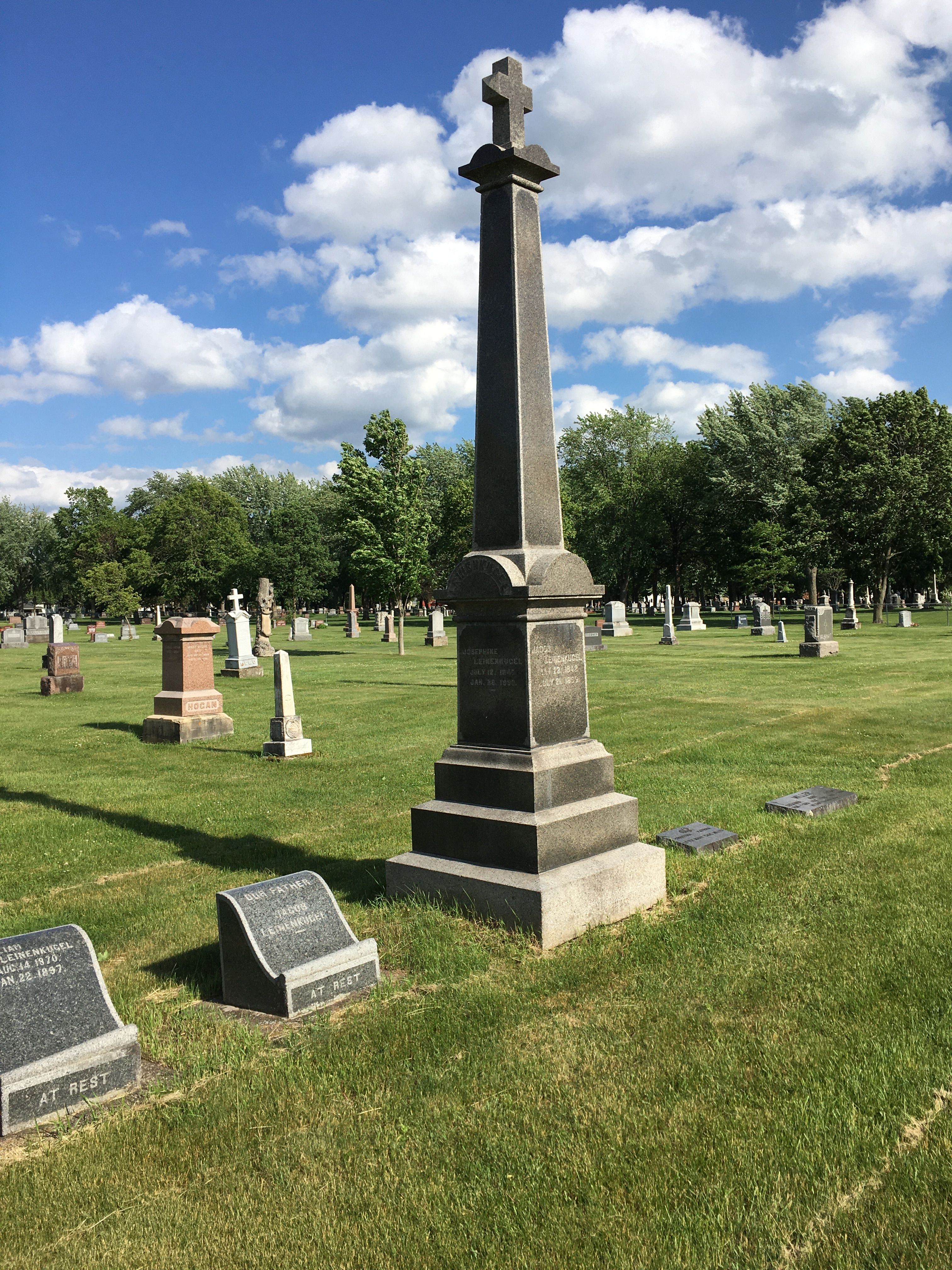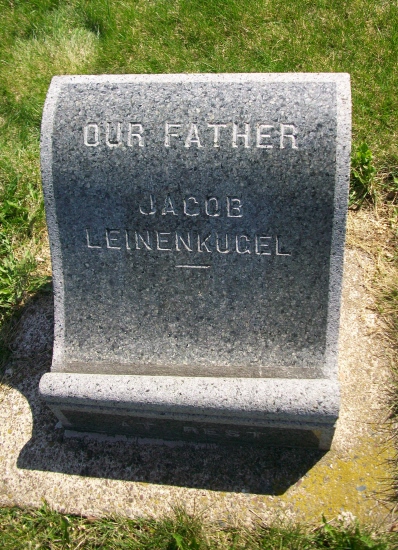"Jacob Leinenkugel was one of the most generous, and in thought and deed one of the most upright men. He was a thoughtful, patriotic citizen, ever devoted to the welfare of the city and anxious in every way with his reach to promote the happiness and welfare of his fellow men. No man ever heard from the lips of Jacob Leinenkugel an unkind or uncharitable saying concerning another. His word was indeed his bond; and in small matters as well as large." —as written of Jacob Leinenkugel in the the Daily Independent, July 22, 1899.
Jacob Mathias Leinenkugel, born in Germany (Prussia) in 1842, came to America with parents in 1845. He grew up in Sauk City, Wisconsin. There he and his four brothers were taught the art of brewing by their father, Matthias.
He married Josephine Imhoff, daughter of another German immigrant family from Highland, Wisc., in 1865. Shortly after the birth of their first son Matt in 1866, Jacob realized a growing desire for independence and a business of his own. Together Jacob, Josephine and baby Matt journeyed north into logging territory, eventually settling in Chippewa Falls. There, in 1867, he built a little brewery with his friend John Miller (no relation to the Miller Brewing Company).
Jacob built a home on the brewery property where his two daughters, Rose and Susan, and a second son, William, were born.
Josephine, in the tradition of pioneer women, worked beside her husband as he struggled to establish the small company. Josephine prepared three meals a day for up to 20 hungry men, in addition to caring for her family. As the brewery grew larger and the major expansion of the brewery started to take place, there were more employees to feed. She would rise at 3 a.m. to do the family (which now included three adopted children) wash before beginning breakfast for employee boarders at 5 a.m. Josephine died of acute pneumonia in 1890, at the age of forty-four, the winter before the expansion was completed. Family members remember Susan Mayer Leinenkugel, daughter to Josephine, describing her mother as having "worked herself to death." The city newspaper wrote of Josephine after her death: She was a devoted wife and mother, one who was ever ready to strengthen in all labor, and comfort in all sorrow: one who faithfully performed the common duties of life, the noblest part of woman's work in this world.
Two years after the death of Josephine, Jacob married Louisa Wilson, and a son Edward, was born.
It wasn't unusual for Jacob Leinenkugel to choose a life of brewing. It was his legacy. Plus, he looked the part! Perfectly cast, he was a big, round, hard-working German. What many people don't know is that Jacob had other interests too.
He erected and owned the first creamery in the county. He opened a meat and grocery store on brewery property. He milled feed grains for the dairy industry and made "Snowdrift" flour for the local retail market. (The firms dam formed the millpond which was located across from Irvine Park. After Jacob's death and the venture became unprofitable, the mill was razed and the land donated to the city in connection with the Marshall family to form Marshall Playgrounds.) He was elected alderman in the first city election of 1869 and was reelected in 1871,1880 and 1883. He was the mayor of Chippewa Falls on three separate occasions: 1873, 1884 and 1891. He was extremely progressive and enjoyed and embraced the use of new inventions and technology. In fact, as mayor of Chippewa Falls he pushed for electric streetlights in the downtown area. (Our fine city had electric streetlights before the large thriving metropolis to the west, called St. Paul, Minnesota.)
Jacob and his family had their "summer home" on the shores of a lake north of Chippewa Falls. It was his refuge-that special spot where an individual or the family gathered to celebrate all of life's blessings. Each year a family "outing" was planned. One summer Sunday all members of the family arrived home to head north for the annual outing when Jacob became ill. He requested that the family not wait for him ... he'd follow in a few days after he felt better. Jacob never felt better. The family was summoned home.
The local paper, The Daily Independent, reported:
He (Jacob) was cheerful until the last, saying to the children that they should have remained at the lake and enjoyed themselves.
"Jacob Leinenkugel was one of the most generous, and in thought and deed one of the most upright men. He was a thoughtful, patriotic citizen, ever devoted to the welfare of the city and anxious in every way with his reach to promote the happiness and welfare of his fellow men. No man ever heard from the lips of Jacob Leinenkugel an unkind or uncharitable saying concerning another. His word was indeed his bond; and in small matters as well as large." —as written of Jacob Leinenkugel in the the Daily Independent, July 22, 1899.
Jacob Mathias Leinenkugel, born in Germany (Prussia) in 1842, came to America with parents in 1845. He grew up in Sauk City, Wisconsin. There he and his four brothers were taught the art of brewing by their father, Matthias.
He married Josephine Imhoff, daughter of another German immigrant family from Highland, Wisc., in 1865. Shortly after the birth of their first son Matt in 1866, Jacob realized a growing desire for independence and a business of his own. Together Jacob, Josephine and baby Matt journeyed north into logging territory, eventually settling in Chippewa Falls. There, in 1867, he built a little brewery with his friend John Miller (no relation to the Miller Brewing Company).
Jacob built a home on the brewery property where his two daughters, Rose and Susan, and a second son, William, were born.
Josephine, in the tradition of pioneer women, worked beside her husband as he struggled to establish the small company. Josephine prepared three meals a day for up to 20 hungry men, in addition to caring for her family. As the brewery grew larger and the major expansion of the brewery started to take place, there were more employees to feed. She would rise at 3 a.m. to do the family (which now included three adopted children) wash before beginning breakfast for employee boarders at 5 a.m. Josephine died of acute pneumonia in 1890, at the age of forty-four, the winter before the expansion was completed. Family members remember Susan Mayer Leinenkugel, daughter to Josephine, describing her mother as having "worked herself to death." The city newspaper wrote of Josephine after her death: She was a devoted wife and mother, one who was ever ready to strengthen in all labor, and comfort in all sorrow: one who faithfully performed the common duties of life, the noblest part of woman's work in this world.
Two years after the death of Josephine, Jacob married Louisa Wilson, and a son Edward, was born.
It wasn't unusual for Jacob Leinenkugel to choose a life of brewing. It was his legacy. Plus, he looked the part! Perfectly cast, he was a big, round, hard-working German. What many people don't know is that Jacob had other interests too.
He erected and owned the first creamery in the county. He opened a meat and grocery store on brewery property. He milled feed grains for the dairy industry and made "Snowdrift" flour for the local retail market. (The firms dam formed the millpond which was located across from Irvine Park. After Jacob's death and the venture became unprofitable, the mill was razed and the land donated to the city in connection with the Marshall family to form Marshall Playgrounds.) He was elected alderman in the first city election of 1869 and was reelected in 1871,1880 and 1883. He was the mayor of Chippewa Falls on three separate occasions: 1873, 1884 and 1891. He was extremely progressive and enjoyed and embraced the use of new inventions and technology. In fact, as mayor of Chippewa Falls he pushed for electric streetlights in the downtown area. (Our fine city had electric streetlights before the large thriving metropolis to the west, called St. Paul, Minnesota.)
Jacob and his family had their "summer home" on the shores of a lake north of Chippewa Falls. It was his refuge-that special spot where an individual or the family gathered to celebrate all of life's blessings. Each year a family "outing" was planned. One summer Sunday all members of the family arrived home to head north for the annual outing when Jacob became ill. He requested that the family not wait for him ... he'd follow in a few days after he felt better. Jacob never felt better. The family was summoned home.
The local paper, The Daily Independent, reported:
He (Jacob) was cheerful until the last, saying to the children that they should have remained at the lake and enjoyed themselves.
Family Members
Advertisement
Records on Ancestry
Advertisement















